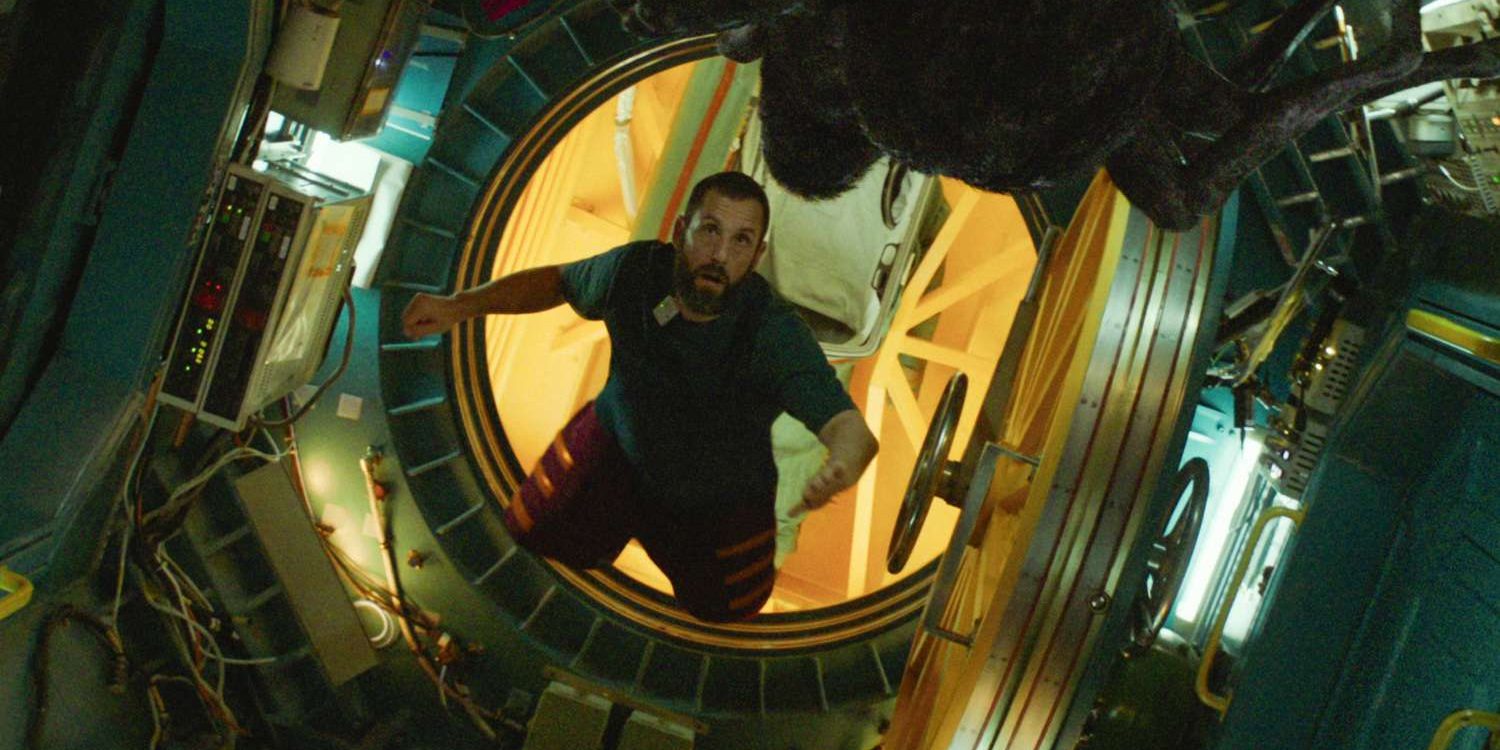Adam Sandler’s latest film, Spaceman, is a complete rejection of everything we know about the actor. From the iconic and hilariously brilliant era of Grown Ups to the nostalgia of Happy Gilmore, it is a well-established truth that Adam Sandler is notoriously funny. His outfits became an internet sensation just as much as his cheeky one-liners in the high-budget romantic comedies he leads in. Sandler transcends generations of movie-goers, remaining an acting legend even as his career continues. Therefore, I was delighted to attend the premiere of Spaceman at the luxurious Egyptian Theatre in Hollywood. I purposefully went in with very little knowledge about the film. The two things I knew were; one, I would be seeing Adam Sandler on the big screen, and two, the film was set in space. Giddy and excited, I awaited Adam Sandler’s speech before the premiere, hoping to see a bold fashion choice, maybe even a pair of basketball shorts. But, as Sandler and the director, Johan Renck, took the stage, the two formally dressed men immediately informed the audience that Spaceman “was not a comedy.” Truthfully, this devastated me and put me in a negative headspace for the rest of the film, but I should clarify now that my disdain for Renck’s Spaceman has nothing to do with its lack of humor.
Based on Jaroslav Kalfař’s novel Spaceman of Bohemia, Spaceman follows Jakub Procházka (Sandler), a Czech astronaut, through his exploration of an interstellar cloud near planet Jupiter. Stranded in his spaceship, Jakub suffers extreme loneliness in his year-long space race with South Korea. His pregnant wife, Lenka (Carey Mulligan), refuses to call Jakub over Czech Connect, the space communication service that Jakub frequently uses. Her frustration and feelings of abandonment due to Jakub’s emotional and physical absence left a gaping hole in the relationship between the two characters, intensifying Jakub’s feelings of isolation as he navigates space. The audience sees Jakub reach an unprecedented state of loneliness – one that sparks the arrival of an arachnid alien (voiced by Paul Dano). The gargantuan spider can somehow understand and speak English, but more oddly, it channels the past and present dilemmas plaguing Jakub’s mind. From the dark conflicts of his youth to the unhappy relationship with his wife, Paul Dano’s spider becomes an emotional outlet for his feelings of depression and seclusion. With the unraveling of Jakub’s history and the growing frustration of his actions towards his wife, Spaceman attempts at delivering a hard-hitting emotional narrative. Ultimately, Netflix’s plagiarism of Interstellar proves to be a massive misfire.
Spaceman is no Madame Web in terms of unpleasant movies that came out this year, but it certainly wasn’t enjoyable. At least in my viewing experience. I had a couple issues with the mechanics of the film. Specifically, the lack of Czech in a film about and inspired by a Czech author and narrative. Sandler and Mulligan had slight eastern European accents at times, but spoke entirely in English for the duration of the film, including the scenes in Czechia. This was an interesting directorial choice, but frankly, one that did not sit well with me as the viewer. The plot and history felt detached from the actors, which fortified the film’s inability to engage with the narrative. The middling accents weren’t the only thing to fall short of my expectations, Spaceman’s dialogue was equally lacking in substance. Paul Dano as a spider constantly repeating “Skinny Human” may seem like the film’s attempt at getting some laughs out of the audience, but that was clearly not the director’s intention. Rather, audiences sat blankly watching Sandler’s character express his deepest fears and insecurities to a talking spider who kept repeating the same advice and same term of endearment (skinny human) over and over again. What was clearly Renck’s venture into a psychologically-moving script through a spider-therapist ultimately fizzled into a lot of repetitive nonsense, and I found myself often forcing my eyes and ears to stay attentive. Furthermore, the film kept digging at the audience’s sympathy for Sandler’s character, who was so deeply unlikeable. For the second time, Jakub had left his pregnant wife alone on Earth for another space exploration — which wasn’t a good look for him as a husband and future father. Perhaps the film was aiming to narrate an astronaut’s avoidant attachment issues, but I felt my disregard for his character’s behavior trump any feelings of empathy. In retrospect, the film should have capitalized on its whimsical premise, adding humor to a lonely astronaut and his spider companion, which would’ve been a perfect addition to Sandler’ amounting comedy repertoire.




